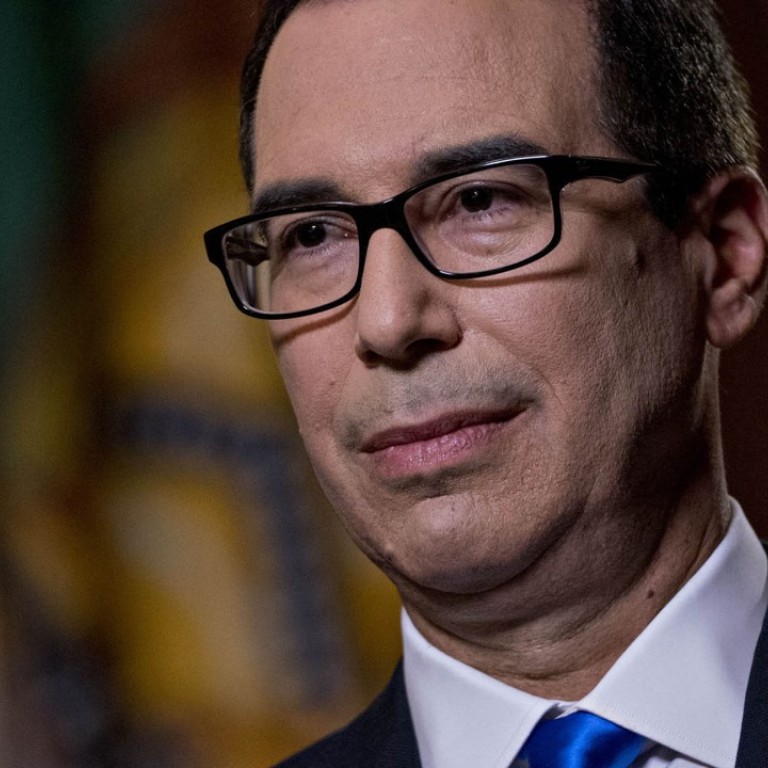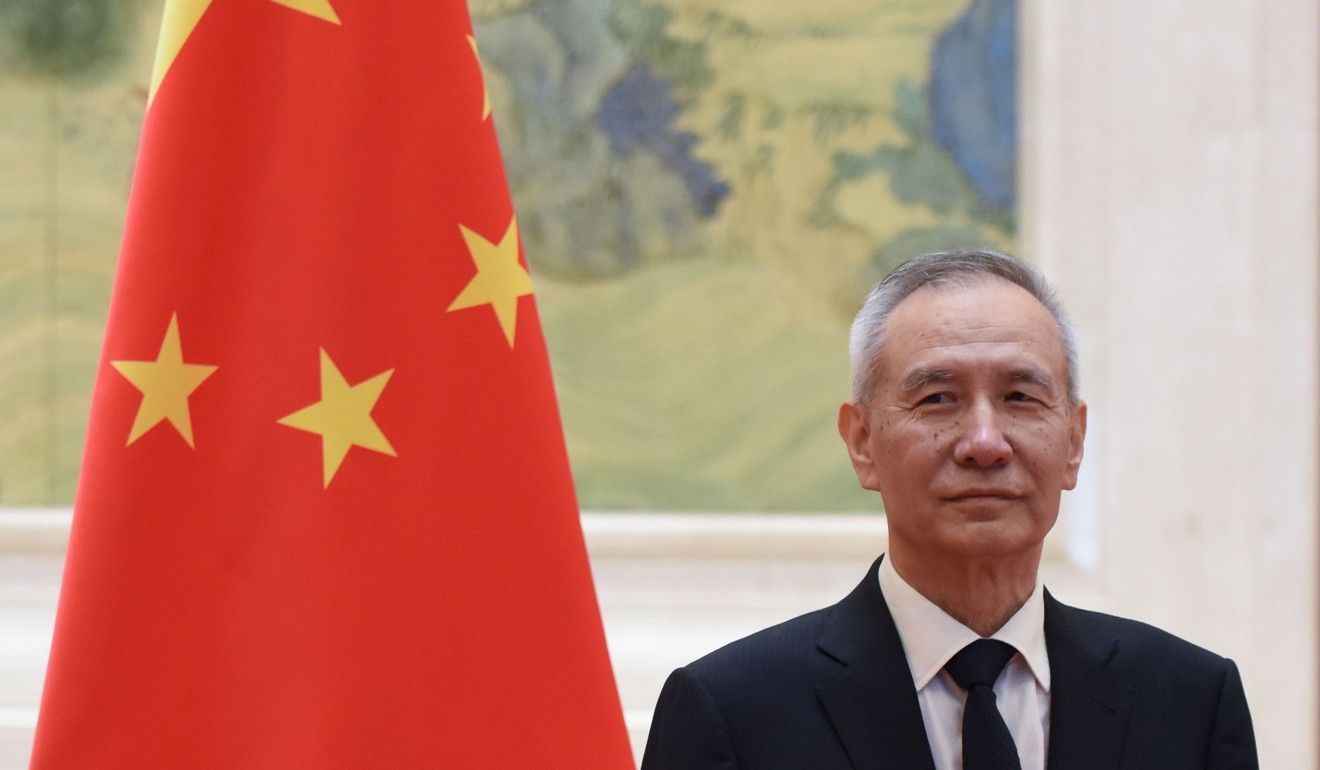
US proposing new round of trade talks with China in near future
Reports of the US outreach to China follow threats by US President Donald Trump over the past week to ratchet up the bilateral trade war with tariffs on all imports from the country
The US government has proposed a new round of high-level trade talks with Beijing aimed at halting further escalation in the bilateral trade war that started in July, according to The Wall Street Journal and Bloomberg News.
US Treasury Secretary Steven Mnuchin recently invited his Chinese counterpart Vice-Premier Liu He, President Xi Jinping’s top economic adviser, for negotiations “in the coming weeks”, according to the Journal.
Reports of the US outreach to China follow threats by US President Donald Trump over the past week to ratchet up the bilateral trade war with tariffs on all imports from the country, moves he has not yet made. US share prices jumped following the reports.
Watch: trade war fears for Chinese pork
Citing sources familiar with the discussions, Bloomberg said the talks would likely be held in Washington while The Wall Street Journal said they could convene in either of the two country’s capitals.
Beijing has yet to formally accept the latest invitation, according to the reports, which come about three weeks after a recent effort by lower-level government officials to resume trade talks, failed to produce any breakthroughs.
Trump stepped up his threats on Friday, pledging to slap punitive tariffs on all Chinese imports on top of an original plan to impose tariffs on roughly half of all Chinese imports totalling US$200 billion within days.
Washington started the trade war with 25 per cent tariffs on US$50 billion of Chinese products, part of Trump’s efforts to end what his administration considers to be theft of intellectual property of US and other foreign companies operating in China.
Beijing has retaliated with tariffs on an equivalent amount of US imports and repeatedly refuted Washington’s allegation that China’s government has been using unfair trade practices and investment regulations to create “national champions” capable of undermining US competitors.
The latest proposal for trade talks followed a visit by Vice-Foreign Minister Zheng Zeguang to Washington this week. Zheng, a top US expert and a leading contender for the next Chinese ambassador to Washington, held meetings with US State Department officials, including Deputy Secretary of State John Sullivan.
Watch: are Chinese consumers less willing to buy American goods?
A State Department spokesperson said yesterday that they discussed a “range of issues related to the US-China relationship and achieving results in our bilateral engagement”, without further elaboration.
Most China specialists have voiced concerns over both the tit-for-tat tariff war and the growing hostility between world’s top two economies, which has seen normal dialogue disrupted and bilateral ties hitting a low not seen since the 1989 Tiananmen crackdown.
Steve Tsang, director of the SOAS China Institute in London, said both sides should resume high-level talks to solve their differences, considering the extent of the countries’ economic inter-dependence.
China was the US’s third-largest export destination after Canada and Mexico last year, according to US Census Bureau data. America is China’s largest export market.
“The unfolding trade war is indeed a big deal, but it has not reached a point that make it impossible to contain,” he said.
Neither Beijing nor Washington announced plans for further negotiations at the conclusion of last month’s talks between Wang Shouwen, China’s vice-minister of commerce, and US Treasury Under Secretary David Malpass. China’s Commerce Ministry said only that the two sides agreed to “keep in touch”.
While Beijing appears to be open to the idea of resuming trade negotiations, both Trump and Mnuchin said late last month that further talks with China were unlikely until trade issues with Mexico, Canada and Europe are resolved.

Trump said on August 27 that although Beijing would like to have further talks, now was “not the right time to talk” to China about the two nations’ trade war.
“It’s too one-sided for too many years and too many decades, and so it’s not the right time to talk. But eventually I’m sure that we’ll be able to work out a deal with China,” he said.
Beijing has increasingly seen Trump’s hardline approach over trade with China as a broader effort by Washington to curb the country’s rise to greater power. Furthermore, top Chinese leaders are apparently concerned about Trump’s inconsistency and unreliability.
Orville Schell, director of the Centre on US-China Relations at the Asia Society in New York, also agreed the current trade stand-off was much bigger than trade differences amid their growing geopolitical rivalry.
“I think what’s really needed is to have really smart people at senior level … to work out a new road map for a better US-China relationship and we’ll each agree to give some necessary concessions,” he said.
“But we don’t have anyone like that, so there is no mechanism to do it and I don’t think Trump is capable of it.”

